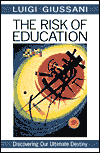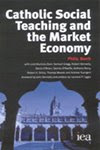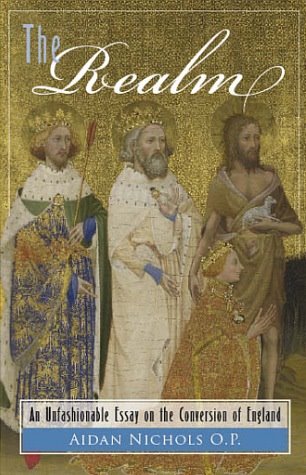I have observed with dismay the
recent controversy over the Vatican’s ruling on baptism. What has dismayed me is the profound theological ignorance amongst Catholics that this affair has exposed.
The doctrine of the Trinity is the foundation of Christian belief. Therefore, a failure to grasp this doctrine undermines the entire intellectual content of faith. In the failure of many to understand why the ruling was necessary and indeed essential to preserve a genuinely Christian belief, we have also exposed the rottenness of our catechesis.
Certain parishes, many in Australia, have been baptising in the name of "The Creator, Liberator, and Sustainer" or similar neologisms. This has been in place of the traditional formula "The Father, the Son and the Holy Spirit" which dates back to the time of the Apostles.
The Congregation for the Doctrine of the Faith has recently ruled that all baptisms conducted with these new formulations are invalid. This means that these baptisms were ineffective, and that persons so baptised are not members of the Catholic Church. They are therefore ineligible to receive the other sacraments, and any sacraments they may have participated in (such as Confirmation) are also invalid.
Why does this formula matter so much? Because our understanding of the Trinity, expressed in the formula “Father, Son and Spirit”, is the foundation of Christianity.
The three Persons of the Trinity are each God in His fullness. Each lacks nothing of the divine nature. In this sense they are all the same. They only thing that distinguishes the Persons from each other is the nature of the (asymmetric) relationships between them. The nature of these loving relationships is the only thing we can know about the Persons of the Trinity. And our knowledge of this internal life is the crucial difference between Christianity on the one hand, and Judaism and Islam on the other. Other key Christian beliefs such as the Incarnation and Catholic ecclesiology only make sense in the light of this revealed knowledge.
This has a profound consequence: when change our understanding of the relationships between the Persons, we change our understanding of the Trinity, and we alter the content of every Christian belief.
The Trinitarian nature of God is a fact that we could never know without God's revelation of Himself. This revelation reached its completion in Jesus Christ, the Second Person of the Trinity. And we know from His own words that the nature of the relationship between the Himself and the First Person is best described as that between a Father and a Son. This knowledge is His gift to us, and is not something made or discovered by us.
Something is dramatically changed when we abandon the idea of Father, Son and Holy Spirit for the idea of Creator, Liberator and Sustainer. A Father, a Son, and a Holy Spirit that intrinsically proceeds from them, are intrinsically related. Just as importantly, they are related only to one another, and their internal relationships are entirely sufficient to define them. God’s independence from His creation, which he needn’t have created, is clearly acknowledged.
But a Creator, a Liberator and a Sustainer are not intrinsically related, and are three different persons with three different natures. The internal nature of the Trinity has been denied. They bear no obvious relation to one another at all. Instead, these persons are defined in relation to the created world. For clearly, a Creator is defined by what it creates, a Liberator is defined by the one whom he liberates, and a Sustainer is defined by the one he sustains. This formula is an expression of tritheism, and these three gods are only defined in relation to a creation on which they are now intrinsically dependent. The theological implication is a drift away from Trinitarianism, and towards polytheism and pantheism.
A typically modern (or hyper-modern)
response is that any insistence on a particular formula is “magical thinking”. But this response is an intellectual dead end. If formulas don’t matter, then it is perfectly permissible to baptise in the name of Larry, Moe and Curly. The evident absurdity of this formula springs from our immediate recognition that Larry, Moe and Curly have no saving power, and that it would be ridiculous to call on them to save us from Sin.
In the real world, words are not meaningless. Father, Son and Holy Spirit simply do not mean the same thing as Creator, Liberator, and Sustainer - or Mother, Daughter and Spirit for the matter.
But at least Larry, Moe and Curly really existed. How absurd would it be to baptise in the name of a divine threesome who, thanks to revelation, we know never existed at all?
Wrong. The question that the Congregation addressed was whether these irregular baptisms were VALID. The answer was an unqualified negative, meaning that the baptisms were completely ineffective. If priests can't tell the difference between invalid (completely ineffective) and illicit (effective, but shouldn't have been done), what hope is the laity supposed to have?





